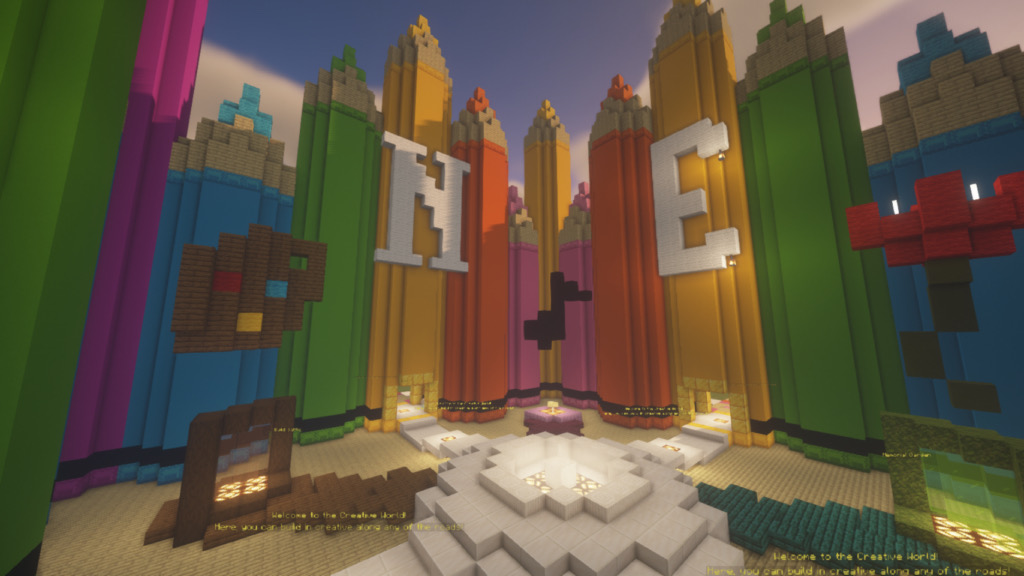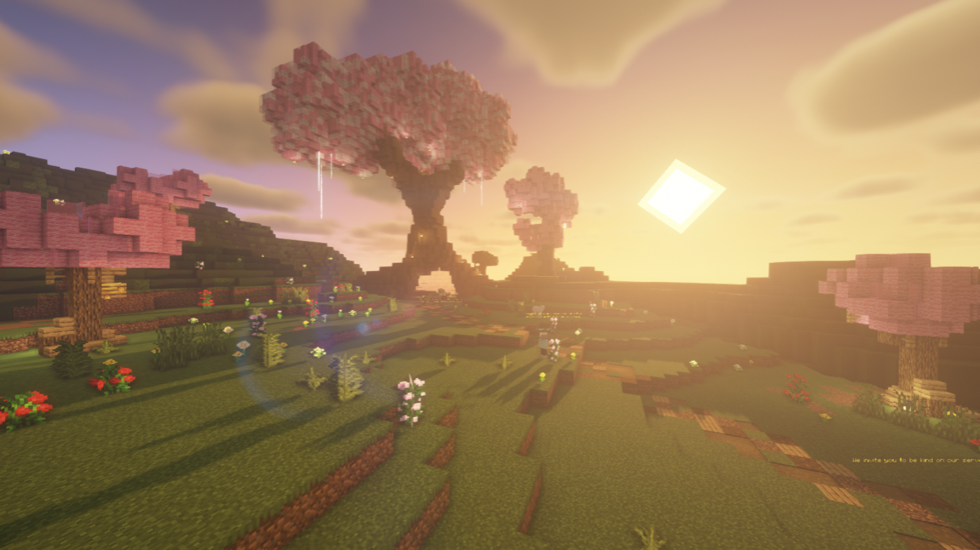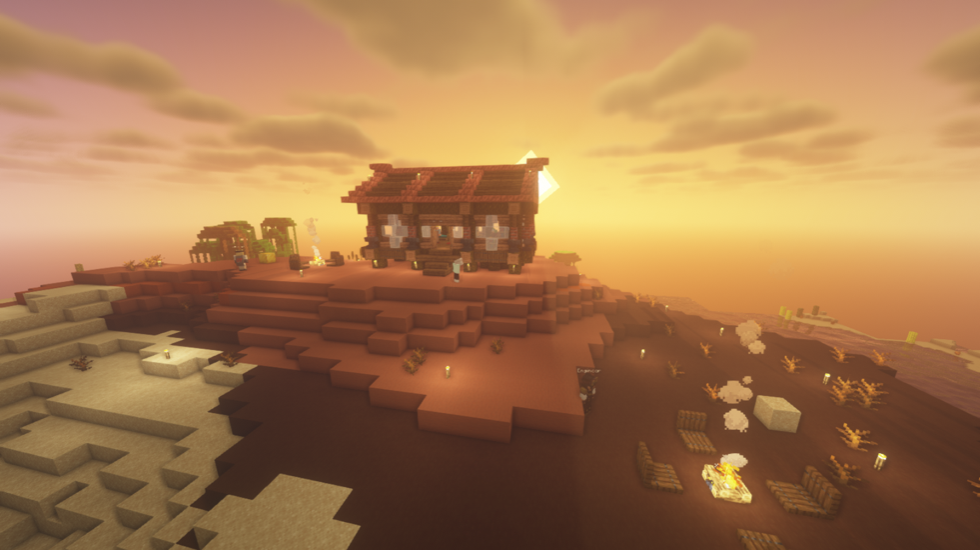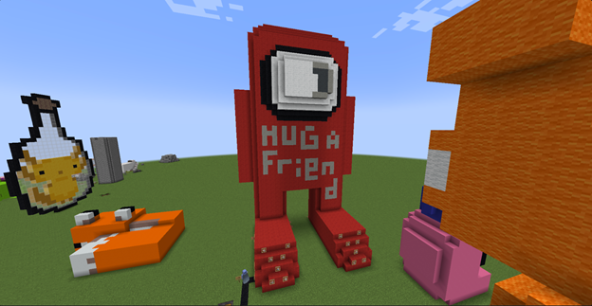Kind ‘Minecraft’ Server Gives Grieving Kids A Compassionate Online Home
By Mikelle Leow, 19 Dec 2022

Image via Experience Camps
Here’s a delightful effect of online interaction for youths that, for once, doesn’t cast a shadow. Living on the well-populated world of Minecraft is ExperienceCraft, a server where kids who have lost their loved ones can build a community and find support from others who share similar plights.
The site, opened this summer and profiled by Mashable, was brought to life by Experience Camps, an overnight summer camp nonprofit for youths who have experienced the death of a caregiver or sibling. It’s not possible for all affected individuals to join these real-life camps, so the organization looked to Minecraft—a virtual world-building game of over 600 million registered users—to create an accessible space with year-round support for kids who need a positive outlet.
Together with researchers from the University of California’s Connected Learning Lab (CLL) and UC Berkeley’s Institute of Human Development, the nonprofit built a virtual world that is clinically-led and harnesses the power of play as a healing technique for grief. A US$100,000 grant from the New York Life Foundation and a further US$50,000 donation from the Templeton World Charity Foundation will help to keep the server running.
“We know that active engagement and participation with grief-aware communities of peers is really important to kids who have lost someone important in their lives,” says Katie Salen Tekinbas, a professor of informatics in UCI’s Donald Bren School of Information and Computer Sciences (ICS). “Through this amazing partnership we wanted to explore how a game like Minecraft could provide such a community.”

Among ExperienceCraft’s developers is 16-year-old Tina LaRosa, a high-school sophomore who attended Experience Camps following the loss of her mother in 2019. Although LaRosa had little experience with Minecraft at the beginning, her resonance with youths in similar situations is valued by the camp’s facilitators, who appointed her as one of its youth advisory board members and a builder for the platform. The teen envisions ExperienceCraft, open to grieving children between the ages of seven and 14, as a fun and inclusive space that channels Experience Camp’s values of kindness, respect, and self-love.
As with all well-meaning digital communities for children, safety comes first at ExperienceCraft. Parents or guardians will first have to go through a registration process for the players, which will involve describing their loss. To respect users’ privacy, moderators will not verify those details but will use the experiences to confirm a child’s identity so as to keep the community free from imposters or other malicious parties. As per Mashable, the server is safelisted by Minecraft, requiring a parent’s email address and an administrator’s approval to sign a player on board.
All players start out with a tutorial encouraging them to be kind to fellow members. Throughout the entire experience, players retain anonymity. The server is also monitored by volunteers and paid moderators trained in handling crises and grief.
The main hub leads players to zones focused on creating, connecting, and fun. There’s a memorial garden where users can build spaces to commemorate loved ones, ‘Zen’ spaces for contemplation or alone time, and a ‘Survival’ world where players can put their teamwork and collaboration skills to the test in high-stakes situations. A dedicated Discord server invites them to be heard and share kind words with one another.

To respect the experiences of all kids, players cannot modify each other’s memorial garden builds. They will also only be allowed to join someone else’s ‘Zen’ space if they receive an invitation. In other areas, changes made to builds will be marked with the handle of the person who altered it, enabling moderators to identify and reprimand offenders.
Players who lash out will be pulled aside to a dedicated ‘Resort’ by a trained moderator to cool down.
Organizers have been impressed with the way young members are making this safe space even more welcoming for their fellow players. “We saw kids on day one start talking about their person who died [and] saw multiple instances of kids engaging with their grief through expressions of their identity,” Tekinbas remembers. “They were also making meaningful contributions to the [Minecraft] world, which is really important for kids developmentally at this age.”
Courtney Dubin, chief program officer of Experience Camps, recalls: “We had a kid show up who made a comment in the chat about being nervous, and they were bombarded by volunteers and other kids saying ‘we’re here, come do this, come do that,’ and then the kid wrote in all capital letters ‘FRIENDS!’”

Image via UCI Department of Informatics
One player adorned their personal treehouse with purple flowers to commemorate a loved one whose favorite color was purple. Another set up a dining room layout to memorialize a meaningful dinner.
In the US, about 5.6 million children are expected to lose a parent or sibling by the age of 18. At least 250,000 youths—many of whom are Black, Indigenous, and children of color—have lost a caregiver to COVID-19.
Tekinbas adds that kids will be comforted from just knowing that every other player on the server has gone through the loss of a significant person in their life.
ExperienceCraft is open every week from Fridays to Sundays at 5 pm to 8 pm ET (2 pm to 5 pm PT).
Dubin hopes that thousands of affected youths will join ExperienceCraft and find themselves a community who understands. As popular as Minecraft is, though, there are still some barriers to getting to ExperienceCraft. Users will need a Mac or PC, or a tablet, PlayStation, Xbox, or Nintendo Switch to access the platform on Minecraft Java or Bedrock.
And ExperienceCraft is just scraping the tip of the iceberg for what these online worlds can bring. Dubin imagines the platform as a source of inspiration for new, inclusive communities that will serve other children who are often marginalized, such as those who are neurodiverse.
[via Mashable and UCI Department of Informatics, images via various sources]





